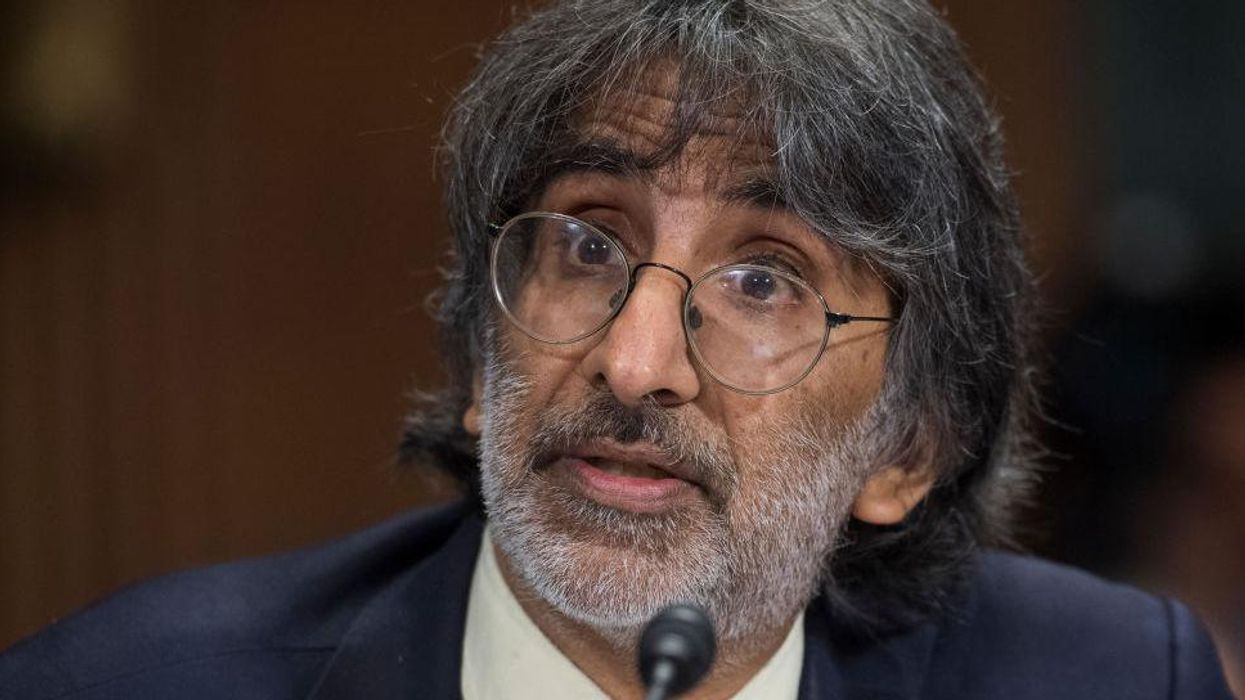
Tom Williams/CQ Roll Call

Akhil Reed Amar, a constitutional scholar and professor at Yale Law School, thoroughly dismantled many of the left's critiques about the leaked Supreme Court opinion draft on abortion.
Two weeks ago, Politico published a leaked opinion draft authored by Justice Samuel Alito. Controversy immediately erupted over the draft because it showed the Supreme Court had voted to overturn key abortion precedents. But Amar, writing in an essay for the Wall Street Journal, explained the "dire assessments" related to the potential overturn of Roe v. Wade "don’t stand up to scrutiny."
The central critique of pro-abortion Americans is that the conservative-leaning court cannot possibly overturn Roe v. Wade because abortion is a settled legal issue.
But Amar pointed out the Supreme Court routinely overturns its own precedents. Plus, the legal doctrine of stare decisis does not apply to the Supreme Court in the same way it applies to lower courts.
"Supreme Court precedents strictly bind lower courts, but they do not bind the Supreme Court itself. Indeed, an essential function of the Court is to revise incorrect or outdated prior rulings. Over the last century, the Court has overruled itself about twice a year—roughly the same rate at which the Court has overturned acts of Congress," Amar wrote.
He added, "Precedents fall for many reasons. Sometimes the world changes in ways that mock the logic and expectations of the old ruling. Sometimes opposing lines of cases evolve and clash, and something must give. Most fundamentally, sometimes the Court comes to believe that an old case egregiously misinterpreted the Constitution, so the old case must go."
Regarding Roe v. Wade specifically, Amar described the case as "ripe for reversal."
"In the eyes of many constitutional experts across the ideological spectrum, it too lacks solid grounding in the Constitution itself, as Justice Alito demonstrates at length in his leaked Dobbs draft," Amar explained. "Even the late Justice Ruth Bader Ginsburg was sharply critical of the decision."
Amar is one of many legal scholars who support "abortion rights" but oppose the jurisprudence on which Roe stands.
Critics of Alito's opinion draft have argued — without evidence — that overturning abortion rights will lead to other rights being overturned, too, such as civil rights, LGBT marriage rights, and even interracial marriage rights.
Even though Alito wrote in his draft that this will not happen, Amar explained why this is the case.
"In keeping with a long line of cases and the spirit of the written Constitution, Justice Alito notes that rights which are neither explicit nor implicit in the Constitution’s text and history generally need strong roots in the mores and practices of the American people," Amar began. "One way to measure these mores and practices is to count state laws: How many states recognize a putative right and how many try to abridge it? How often and how strictly are laws on the books in fact enforced?"
Therefore, when the majority of U.S. states permit or accept an issue before the court, the court almost always defers to the majority in keeping with the Ninth and Tenth Amendments. But Amar noted that abortion has never been one of those issues.
The ruling in Roe v. Wade, by contrast, has been under fierce and relentless attack for decades in most states. It has been unremittingly condemned in the quadrennial party platforms of one of America’s two major parties, a party that has won half of the presidential elections since Roe. Roe is also decisively different from various contraception and marriage cases because, as Justice Alito’s draft opinion stresses, abortion uniquely involves destroying unborn human life, typically long after conception and implantation.
The celebrated legal scholar admitted he is a "Democrat" who supports abortion but opposes Roe.
"The Court’s ruling in the case was simply not grounded either in what the Constitution says or in the long-standing, widely embraced mores and practices of the country. Perhaps I’m wrong in thinking that, and perhaps the Dobbs draft is wrong too," Amar said.
"But," he continued, "there is nothing radical, illegitimate or improperly political in what Justice Alito has written."